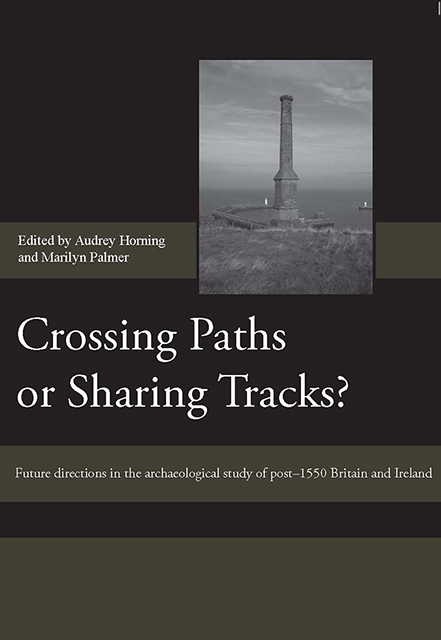 Crossing Paths or Sharing Tracks?
Crossing Paths or Sharing Tracks? Published online by Cambridge University Press: 07 March 2023
In recent years, vague attempts have been made to characterise Contemporary Archaeology as an archaeology of modern material culture; of post-war archaeology; as archaeology 1950–2000; or more widely as a reflexive, interdisciplinary historical archaeology. I would argue, in opposition to some of these attempts, that Contemporary Archaeology is inspired by, rather than shackled to, any temporal period or subject of study. Rather, Contemporary Archaeology has the potential to be defined through its mode of engagement withthe world, an engagement in which ‘traditional’ archaeology, interdisciplinary work, materiality, politics, and more are inextricably linked. Withreference to recent projects originating in a number of diff erent arenas, this chapter attempts to describe the Contemporary Archaeologist and their place within the subject discussion of this publication. Through this eff ort, I hope to stake a claim for Contemporary Archaeology as a truly avant-garde movement withthe potential to profoundly influence the future of the discipline.
INTRODUCTION
For at least ten years, there has been much discussion within the field, referred to by this volume, of the relationship between ‘Industrial Archaeology’, ‘Post-Medieval Archaeology’ and ‘Historical Archaeology’. The discussion incorporates diff erent types of material, diff erent dates, and diff erent research agendas, and it doesn't appear to be near to resolution. Perhaps, rather than trying to find some unifying thread between these diff erent fields, it is of more use to archaeology, certainly in terms of strengthening archaeological theory and practice, to work to establish them as diff erent, or even opposed, ways of seeing. By this I mean that each of the above disciplines can assuredly bring a diff erent focus, diff erent body of theory and historical development and diff erent ways of working to the wider field without any need to integrate them. The creation of all-encompassing research agendas, something that would be an inevitable result of any attempt to answer the question of what the above sub-fields actually are and how they relate to each other, should be seen as secondary in importance to the need to be comfortable and confident withthe way we work; comfortable withpeople working in diff erent ways to ourselves; and confident that other ways of working primarily serve to challenge and strengthen Archaeology rather than posing a threat.
To save this book to your Kindle, first ensure [email protected] is added to your Approved Personal Document E-mail List under your Personal Document Settings on the Manage Your Content and Devices page of your Amazon account. Then enter the ‘name’ part of your Kindle email address below. Find out more about saving to your Kindle.
Note you can select to save to either the @free.kindle.com or @kindle.com variations. ‘@free.kindle.com’ emails are free but can only be saved to your device when it is connected to wi-fi. ‘@kindle.com’ emails can be delivered even when you are not connected to wi-fi, but note that service fees apply.
Find out more about the Kindle Personal Document Service.
To save content items to your account, please confirm that you agree to abide by our usage policies. If this is the first time you use this feature, you will be asked to authorise Cambridge Core to connect with your account. Find out more about saving content to Dropbox.
To save content items to your account, please confirm that you agree to abide by our usage policies. If this is the first time you use this feature, you will be asked to authorise Cambridge Core to connect with your account. Find out more about saving content to Google Drive.